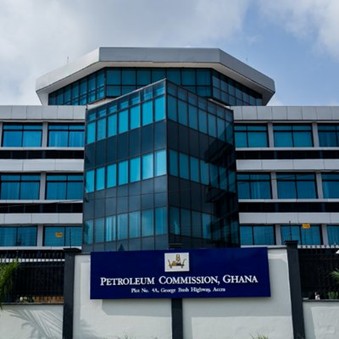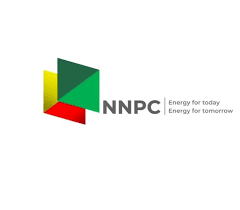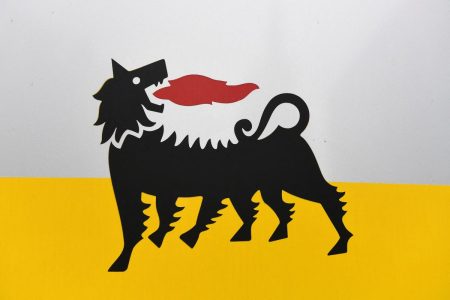18 October 2011, Sweetcrude, Lagos— The umbrella body of employers in Nigeria, the Nigeria Employers Consultative Association (NECA) has dissociated its members from the private sector’s reported endorsement of the government’s plan to remove subsidy on petroleum products as from next year.
The association claimed that those that met with government and issued a statement endorsing subsidy removal acted on their own and on behalf of their individual companies.
This came as Sweetcrude gathered that three of the 45 individuals that met with Presidency at a retreat held on October 14, 2011, at the Presidential Villa, declined to sign the contentious communiqué endorsing fuel subsidy removal.
Meanwhile, a host of workers’ groups including Academic Staff Union of Universities (ASUU), Trade Union Congress of Nigeria (TUC), Petroleum and Natural Gas Senior Staff Association of Nigeria (PENGASSAN) and Pharmaceutical Society of Nigeria (PSN) backed the Nigeria Labour Congress (NLC’s) position and threatened total showdown if fuel subsidy was removed.
Only oil marketers endorsed the government’s plan as well as the Nigerian Institute of Management (NIM), which canvassed phased removal of fuel subsidy, to ameliorate expected adverse effects on the citizenry.
At a briefing in Lagos, NECA Director-General, Mr. Segun Osinowo, said none of the five Business Members Organisations (BMOs), that include NECA, MAN, Nigerian Association of Chambers of Commerce, Industry, Mine and Agriculture (NACCIMA); Nigerian Association of Small Scale Industrialists (NASSI) and Nigerian Association of Small and Medium Enterprises (NASME), gave the 42 individuals the mandate to speak on its behalf.
After an initial shift in venue from the famous Obudu Ranch Resort in Cross River State to the Banquet Hall of the Presidential Villa, Abuja, key players in the Organised Private Sector, OPS, led by the President of MAN, Mr Joseph Jamodu, resolved with the National Economic Team, NEMT, at the end of a two-day retreat to support the withdrawal of subsidy for petroleum products.
Those who attended the event included, Chairman of Dangote Group, Alhaji Aliko Dangote; Mr Femi Otedola, African Petroleum and Zennon chairman; CEO of Oando; Mr Wale Tinubu; CEO of Sokoto Cement Company; Alhaji Isiaka Rabiu; Mr Jim Ovia, Mr Tony Elumelu; Mr Atedo Peterside; Governors Peter Obi and Murtala Nyako; Mr Nduka Obaigbena; Mr John Momoh and Mr Ben Murray-Bruce.
The position of the captains of industry was made public through the Publisher of Thisday Newspapers, Mr Nduka Obaigbena, who read out the endorsement which was signed by 42 of the 45 private sector participants.
Speaking on the endorsement, NECA DG said the 42-men acted on their own because the OPS was yet to take a decision on the matter. According to him, the OPS made up of about 6000 members affiliated to the five BMOs would meet in two weeks to take a position on the contentious issue, adding “as soon as the OPS meets and takes a position, this will be conveyed to the government and made known to the public through appropriate channels.”
Osinowo advised government to do the needful by engaging in dialogue with acknowledged and authentic representative organizations of the OPS, rather than individual business owners, multinationals and favoured business men in the private sector.
“This is the first time that government is getting individual members to sign a policy document on behalf of an institution like OPS. The appropriate thing is for government to engage stakeholders on such key policy issue in a transparent and constructive manner. Government claimed to have commenced the process of dialogue with the OPS through the statement issued by some of our members.
“We considered it necessary to set the records straight and we want to say that the meeting was indeed not with the OPS. It is important for the public to know that the OPS, comprising NECA, MAN, NACCIMA, NASSI and NAMSE, was neither invited nor represented in its institutional capacity at the said meeting with government.
“The private sector individuals/companies that were present at the meeting attended in their personal/company capacity and were not mandated to speak on behalf of the OPS. Therefore, the purported support of the OPS for the removal of fuel subsidy is not true, as the OPS is yet to meet and take a position on this issue. We have set a motion and machinery for the BMOs to meet and take a decision on the issue. In the light of the foregoing, NECA dissociates itself from the said statement, which was reported to have been signed by some 42 representatives of the OPS at the meeting.”
Mr. Osinowo wondered why government hand-picked some individuals and termed them as representatives of OPS, when it was the same government that declined an invitation to meet with OPS to discuss the matter. “We had planned to have an interaction with government officials on the issue, but a few days to interaction, government officials said they were no longer participating. We had to cancel the programme,” he lamented.
While NECA’s position is being awaited, some eminent Nigerians and groups have continued to restate their opposition to removal of fuel subsidy. Eminent jurist, Justice Kayode Esho (SAN), Prof Ben Nwabueze (SAN) and Prof Ayo Akinkugbe opposed the idea on the grounds that the government had no plans to cushion the effects of subsidy removal. They spoke at the Hallmarks of Labour award ceremonies in Lagos on Sunday. Nwabueze said the government’s plan justified his repeated call for revolution in the country.
On his part, ASUU National President, Professor Ukachukwu Awuzie threw the weight of Nigerian lecturers behind the resistance against removal of fuel subsidy. He told Vanguard that ASUU was on the side of the NLC on the matter. “The position of the Union is as articulated by the Nigerian Labour Congress because we are part of the decision in public interest . We identify fully with the NLC and take the position of the congress, “he said.
President of PENGASSAN, Comrade Babatunde Ogun, said the oil workers’ position on the issue had not changed, saying “we gave government conditions before full deregulation can be considered.”
He vowed that the entire oil and gas industry would be shut down should government go ahead with subsidy removal without meeting oil workers’ conditions. “We have said it before and our position has not changed. Like I said, few days ago, subsidy is a problem in the downstream oil sector because that sector is troubled and we work there but we have no faith in government on how to go about in addressing the issue.
The advice of National Union of Petroleum and Natural Gas Workers, NUPENG and PENGASSAN two years ago on things they need to do to mitigate the impact of removing subsidy has not been done. So the idea of jumping to remove subsidy will not give us the road map for carrying those activities and this is a challenge. We need to be convinced about what we have advised government to do, the time table for doing it and what they have done. We should be able to assess what government has done with facts and values.”
Reacting to the proposed removal of fuel subsidy, President of the Pharmaceutical Society of Nigeria, PSN, Pharm Azubike Okwor, described the move as unrealistic. “We do not believe there is any subsidy, all that is going to happen is that people will pay for the inefficiencies of government.”
Okwor who declared that all the materials required for refining crude oil was available in the country lamented that government had failed to justify why Nigerians had to pay more for petroleum products.
For the President of NACCIMA, Dr. Herbert Ayayi, the timing is wrongbecause most companies are performing poorly because of low purchasing power. He urged the government to be careful in dealing with the issue that affect every facet of the economy, especially with regard to the low-income earners.
The TUC said current Petroleum Products Pricing and Regulatory Agency, PPPRA, template for determining products prices was characterized by deception, corruption and inefficiency.
President-General of TUC, Comrade Peter Esele, in a write-up titled: “Removal of Subsidy: hard road to travel”, said the key cost elements – product cost including freight, lightering which included ship to ship transfer costs, demurrage and product transfer losses, financing and storage costs etc were all negotiated with built-in corruption and inefficiencies.
As a prelude to the removal of subsidy, Esele said the template should be reviewed to remove the padded margins and unearned costs. “For instance, there is no reason for government to guarantee a ten day demurrage to importers when three days will do. To do this is to encourage the system to be creamed by fat cats.
There are many more like that. Suffice to say that the PPPRA template of 15 August which puts landed cost at N129.21per litre of PMS (petrol) and marketers’ margin at N15.49 thus giving a landed cost of N144.70 per litre of PMS and a subsidy of N79.70 per litre in the light of a pump price of N65.0 per litre can be trimmed by more than 20 to 30% when the corruption and inefficiencies padded into it are eliminated.”




